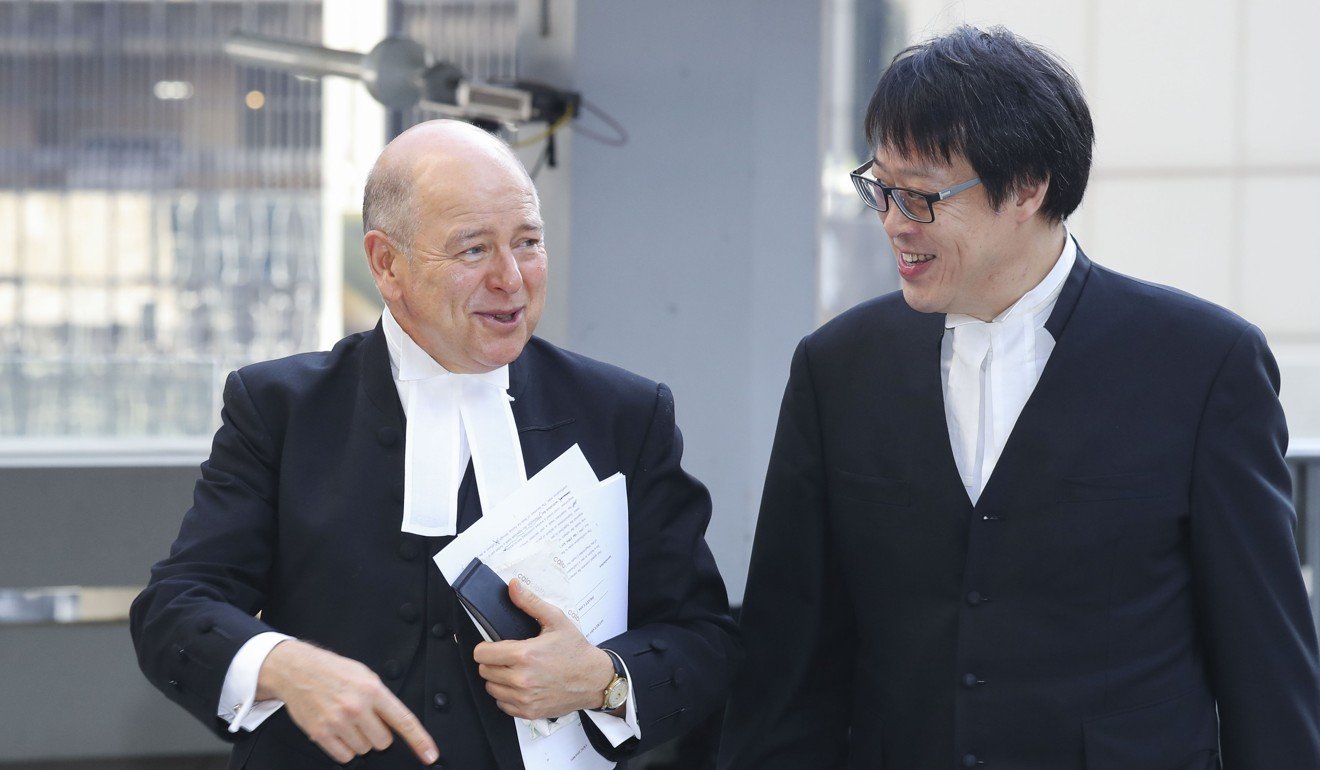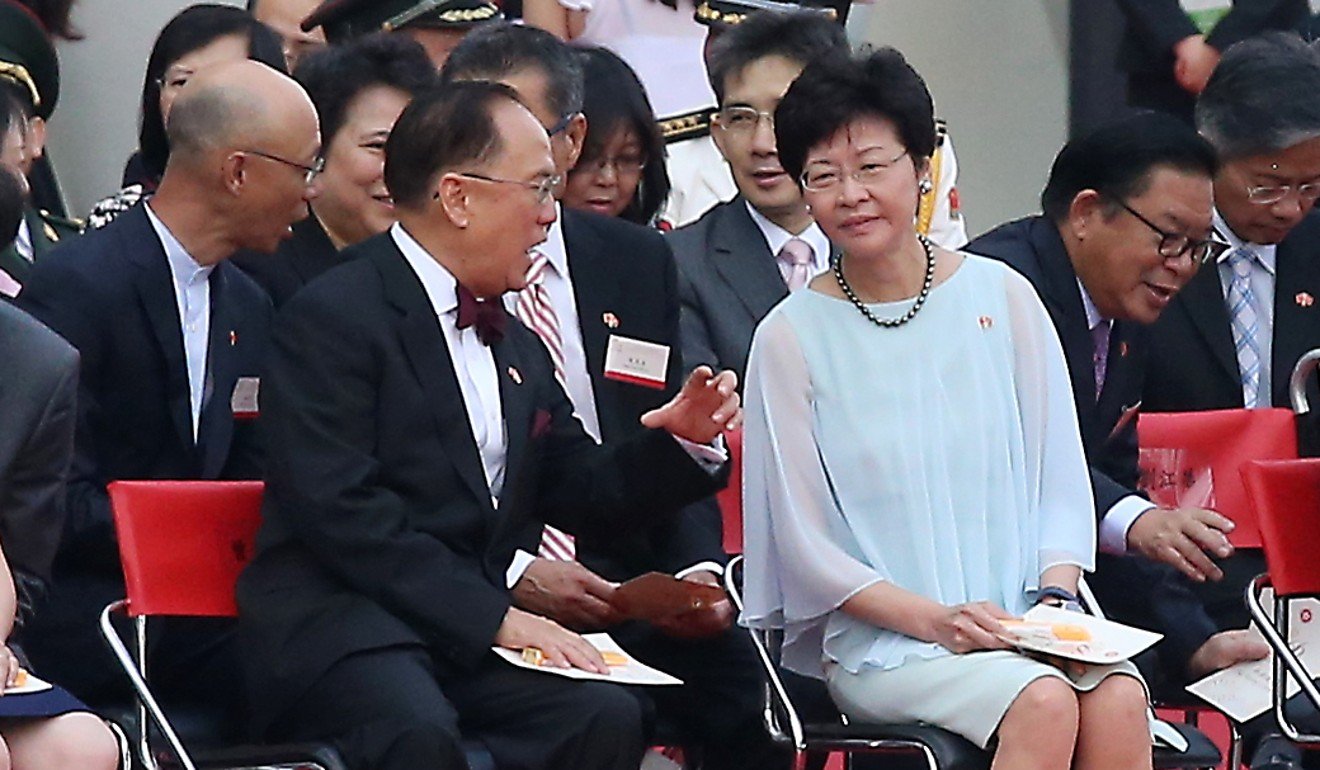
What now for Hong Kong former chief executive Donald Tsang after his misconduct conviction is quashed by Court of Appeal?
- The city’s former leader has hefty legal bill and speaks of family torment, but keeps his pension and honours following judges’ ruling
- Chief Executive Carrie Lam among those expressing support for Tsang, but senior legal figure says conviction was only quashed because of jury misdirection
Despite having his conviction quashed, Donald Tsang Yam-kuen can hardly be described as emerging unscathed from his lengthy legal battle, with five years of litigation emptying his pockets and making him the city’s first chief executive to be jailed.
Lawyers estimate the cost to hire his legal team – including Queen Counsel Clare Montgomery and local silks Peter Duncan, Selwyn Yu and Derek Chan Ching-lung – over two trials and two appeals could amount to HK$50 million (US$6.4 million).
The city’s former leader may be entitled to make the Department of Justice foot part of his bill for the appeals after Wednesday’s triumph, although he had not yet made such an application, the Post has learned.
But the remaining cost to him is still expected to be substantial, as he was also ordered by a lower court earlier to pay prosecutors HK$1 million for the investigation and their equally star-studded team, consisting of British barristers David Perry QC and local counsel Maggie Wong Pui-kei SC and Eric Kwok Tung-ming SC.

He has also spent almost eight months in a maximum-security prison, which is short of the year he was sentenced to because holidays and good behaviour were taken into account.
“Eight months of imprisonment and a litigation that almost cost me the life savings I had with my wife has tormented my family,” the retired senior official said in a statement.
Tsang, 74, was found guilty in 2017 of one count of misconduct in public office over his failure to disclose his dealings with businessman Bill Wong Cho-bau regarding a penthouse Wong owned in Shenzhen, mainland China.
What was supposed to Tsang’s temporary retirement home turned out to be his worst nightmare since stepping down as chief executive in 2012, which only ended when the top court quashed his conviction on Wednesday as a result of the trial judge’s errors.
Now the career civil servant, who has more than 40 years of experience, could find some financial relief from the court’s decision. The quashing of the conviction would mean he would get to keep his pension.
While refusing to comment on individual cases, a spokesman from the Civil Service Bureau cited the Pensions Ordinance, which states that retired civil servants could lose all or part of their pension if they were found guilty of an offence related to their office, subject to the chief executive’s approval.

This no longer applies to Tsang following Wednesday’s ruling. In fact, Tsang should have been receiving his pension all along because such a sanction would not be invoked until the civil servant in trouble had received his final verdict from the highest court he sought justice from.
Tsang, who finished serving his sentence in January, also got the G4 bodyguards he has as a former chief executive back in January, who returned to his side as he left the custodial ward of Queen Mary Hospital, accompanied by the suited-up elite team from the police force.
The risk of losing his knighthood and other honours can also be put aside. Tsang, who started his career as an executive officer under the colonial British government, was knighted before the handover in 1997. He was also awarded a Grand Bauhinia Medal in 2002.
Support from his old colleagues has poured in. Former secretary for Constitutional and Mainland Affairs Raymond Tam Chi-yuen said he was excited to see Tsang’s vindication, adding it was saddening to see him entangled in litigation and end up in jail.
Tsang, a devout Catholic, also attracted the blessing of sitting Chief Executive Carrie Lam Cheng Yuet-ngor, also a believer, despite her staying out of the limelight in recent days amid the waves of protests over the now-suspended extradition bill, which would allow Hong Kong fugitives to be transferred to, among other jurisdictions, mainland China.
Lam, who was Tsang’s then secretary for development, testified at his trial in 2017, calling him a “role model”.

Tsang’s then chief secretary Henry Tang Ying-yen also came out in support. “It means that he had been wronged the whole time. For the few months he spent in [jail], it cannot not be more obvious that it was miscarriage of justice,” he said.
He echoed what Tsang hailed in his statement as a legal clarification for civil servants, who he said should no longer be charged for misconduct just because he or she had failed to make a disclosure.
“It could harm the morale of civil servants and make them resort to inaction,” Tang said.
Former financial secretary John Tsang Chun-wah, who met Tsang in the United States during their studies, also wished his ex-colleague the best.
But former director of public prosecutions Grenville Cross said the quashing of Tsang’s conviction was only due to the fact the trial judge had made an inadequate direction to the jury.
“The appeal has succeeded on a narrow point,” he said.

